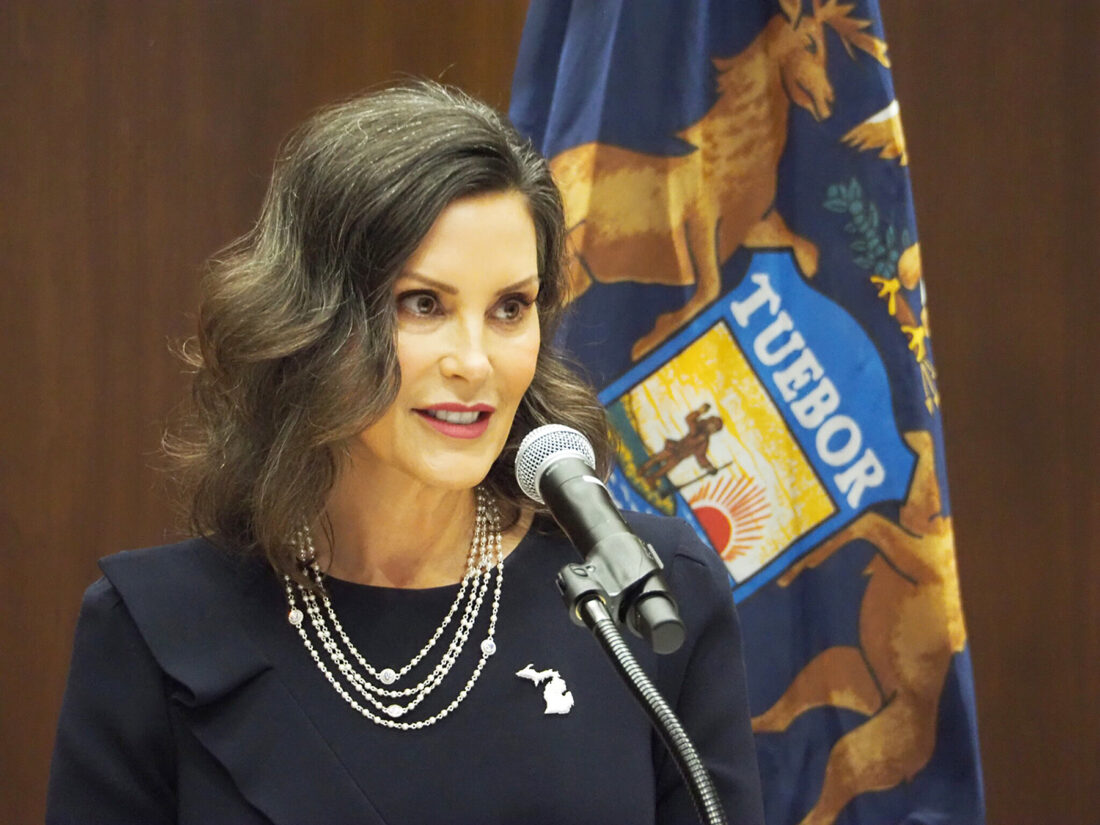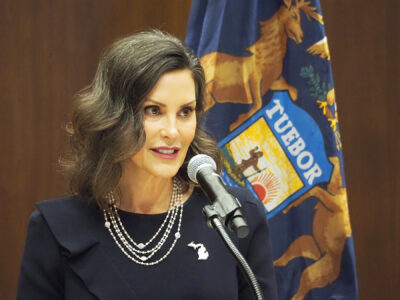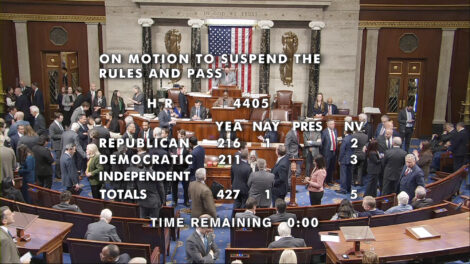Whitmer signs GOP-led push for Michigan earmark reforms

Michigan Gov. Gretchen Whitmer addresses the 2025 state budget impasse and the damage of federal tariffs on the state’s economy Sept. 16 at Heritage Hall in Lansing, Mich. (Ben Solis | Michigan Advance)
The legislative earmark reforms championed by Michigan House Speaker Matt Hall, R-Richland Township, during the fraught 2025-26 budget process became law Tuesday after Gov. Gretchen Whitmer signed the House and Senate’s respective bills into law.
Whitmer signed House Bill 4420 and Senate Bill 596, now Public Acts 32 and 33 of 2025.
The laws together would institute new earmark rules initially instituted in the GOP-controlled House during the budget process, which were later adopted by the Senate, run by majority Democrats, as bargaining chip to end the stalemate that saw the government shut down briefly as lawmakers worked into the night to hammer out a deal to fund the state of Michigan.
Part of that deal required both sides of the legislative chambers to adopt some aspects of Hall’s framework. The biggest new piece is that legislative earmarks need to be disclosed at the front end of the budget process and must marinate in the public view for nearly 50 days so the public, press and appropriations leaders can scrutinize whether the requests would be in the greater interest of the state and the communities they serve.
That scrutiny, as it did in the 2025-26 process, would serve as a future hedge against earmarks that don’t meet that standard from making it into proposed appropriations plans and a final legislative budget deal.
Whitmer praised the bills in a news release issued after the signing.
“Since I took office, I’ve been committed to increasing transparency in our government, so Michiganders know exactly where their hard-earned dollars are going,” Whitmer said. “That’s why I made a promise to increase transparency on legislative earmarks in my most recent State of the State. Less than a year later, I’m proud to sign these two bills that requires lawmakers to put their names on any projects they propose. I’ll keep working with anyone to serve Michiganders and increase transparency in our government.”
Senate Majority Leader Winnie Brinks, D-Grand Rapids, said in a statement that Michiganders deserve the transparency of knowing where their hard-earned tax dollars are being spent.
“That’s why I’m proud that my Senate Democratic colleagues and I championed this legislation — which passed with bipartisan support — to require all earmarks and enhancement grants to be publicly disclosed before the passage of the state budget,” Brinks said. “Today’s signing of this legislation into law underscores our continued commitment to ensuring our government remains accountable and accessible to the folks we’ve been entrusted to serve.”
And yet, the big winner was arguably Hall, who backed the push early and made it a major sticking point in the negotiations that went down to the wire of the October 1 start of the new fiscal year. Although Democrats blamed Hall and his chamber for holding up the budget process after failing to meet the statutory July 1 deadline to produce a budget, which the Senate did in April, the push for transparency on earmarks got across the finish line largely due to his efforts early in the cycle.
“The signing of the Hall Ethics, Accountability and Transparency (HEAT) plan is the most significant reform to our state budget in decades,” Hall said. “For far too long, politicians and Lansing insiders have abused the system to stuff the budget full of anonymous pork projects they can’t defend. That abuse ends today.”
———
Michigan Advance is part of States Newsroom, a national 501(c)(3) nonprofit. For more, go to https://michiganadvance.com.




